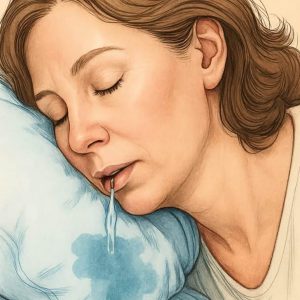
Nighttime cramps can be an uncomfortable and disruptive experience that interferes with sleep and rest. If you’ve ever woken up in the middle of the night with painful muscle cramps, you’ve probably wondered what causes them.
In this overview, we’ll look at the most common reasons cramps occur at night and provide a deeper understanding of this frustrating problem.
The duration of a cramp can vary—sometimes lasting just 30 seconds, but in more severe cases, stretching to ten minutes or even longer. The discomfort in the affected muscle may linger for up to an hour afterward, depending on the intensity of the cramp.
Let’s take a closer look at how to prevent and relieve these cramps so you can improve your sleep quality.

Why Cramps Happen and How to Ease Them
Cramps can arise from several different causes, including:
• Intense physical activity
• Overworking the muscles
• A sedentary lifestyle
• Dehydration
• Age-related muscle wear and tear
• Pregnancy, particularly in women
• Dietary imbalances
To relieve cramps, there are generally two approaches: stretching exercises and simple treatments.
Stretching routines to ease cramps:
• For calf cramps: Sit down, raise the affected leg, grab the end of your foot, and gently stretch it with your hand.
• For foot cramps: Sit down and carefully stretch out your toes.
• For other types of cramps: Lie on your back, pull the affected leg toward your body, and hold the stretch for about 20 seconds before relaxing.
• Massaging the affected area can also help improve blood circulation.
Home remedies include:
• Warm baths
• Heating pads
• Maintaining a more balanced diet

Helpful Tips
Here are some practical tips that can help prevent or ease nighttime cramps:
1. Stay well hydrated: Drink enough water throughout the day to avoid dehydration, which is a common cause of cramps.
2. Warm up before exercise: Proper warm-ups prepare your muscles and reduce the risk of cramping during intense physical activity.
3. Stretch regularly: Include stretching in your daily routine—especially before and after exercise—to maintain muscle flexibility.
4. Eat a balanced diet: Make sure you’re getting enough electrolytes and essential minerals. Deficiencies can increase the likelihood of cramps.
5. Avoid overexertion: Don’t push your body past its limits—too much intensity or duration in workouts can trigger cramps.
6. Wear proper footwear: Choose shoes that are comfortable and provide good support, especially if you’re active or on your feet a lot.
7. Consider supplements: Magnesium, potassium, or calcium supplements may be helpful in some cases, but it’s always best to consult a healthcare professional before starting any supplementation.
Night cramps may be common, but with the right lifestyle adjustments, stretches, and self-care, you can reduce their frequency and intensity—and enjoy more restful nights.




